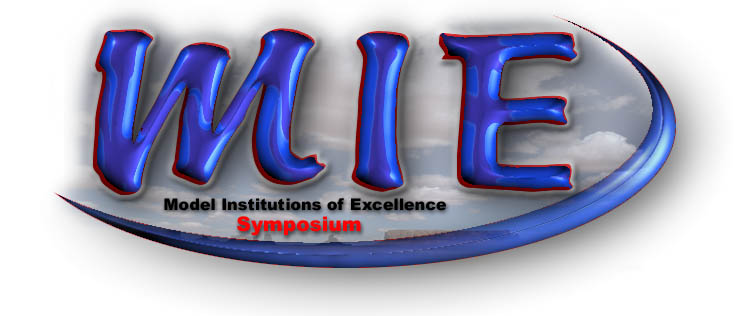
| |||||||||||||||||||||||||||||||||||||||||||||||||||||||||||
|
Undergraduate Student Symposium Thursday, April 6, 2000 115 Lester Hall | |||||||||||||||||||||||||||||||||||||||||||||||||||||||||||
NASA's MURED Office sponsored an interactive videoconference on Thursday,
April 6, "Fulfilling NASA's Challenges in the Millennium: Retooling
Knowledge Bases, Preparing for Opportunities, and Making Your Mark", The
Symposium was designed to reach approximately 2,000 students and faculty
and focuses on NASA Enterprise related topics:
| 9:00 - 10:00am | Opening Plenary Session
| 10:00 - 11:30am | Prospective I: | Theme: "Retooling Knowledge"
| 12:00 - 1:00pm | Pizza
| 1:00 - 3:00pm | Prospective II: | Theme: "Preparing for Opportunities"
| 3:30 - 5:00pm | Prospective III: | Theme: "Making Your Mark"
|
|
|
|
|
|
Question: What aspects of the NASA Millennium Symposium did you find
most valuable?
| Response 1: The exposure to various opportunities. I most enjoyed the speech by the astronaut. Response 2: Programs that are available to students and how students can go through the process to improve their chances for success. Response 3: Learning about research areas not related to your own major and the possibilities of cross-discipline research. Response 4: The information that the speakers gave on how they got into their careers, to me, was the most valuable aspect of this symposium.
Question: What aspects of the NASA Millennium Symposium did you find
least valuable?
| Response 1: Some speakers went to deep in what they do and the way they got there. Response 2: The interruptions because of the problems in communication were distracting, but I understand that some schools were doing this for the first time.
Question: Do you think that videoconferencing technology is an
effective delivery method for this symposium? Why or why not?
| Response 1: I did not particularly enjoy this method. It seems very distant. It is hard to relate to these panelists or to ask questions. Of course, it is impossible to "network" with the panelists. Response 2: Yes, allows everyone the chance to attend and not to travel a great distance. Response 3: I can see the ability to have more people attend a conference went effectively. Videoconferencing is an effective delivery method only if all parties involved can communicate smoothly. Personally, I prefer on site conferences for the opportunities to talk to presenters in person afterward. Response 4: Yes, because it allows for other people to be involved in the discussion without traveling to the actual conference.
Question: Would you like to have the NASA Millennium Symposium
expanded? If so, how or what areas would you like to see included?
| Response 1: Yes, with a little more interaction during the video conferencing. Response 2: I would like to see how biologist and medical doctors fit into NASA, and what kind of roles they play in the work done in government agencies.
Question: Please make any other suggestions and/or recommendations in
the space below.
| Response 1: I would suggest that more students who are intersted in science disciplines have access to such a symposium. | |||||||||||||||||||||||||||||||||||